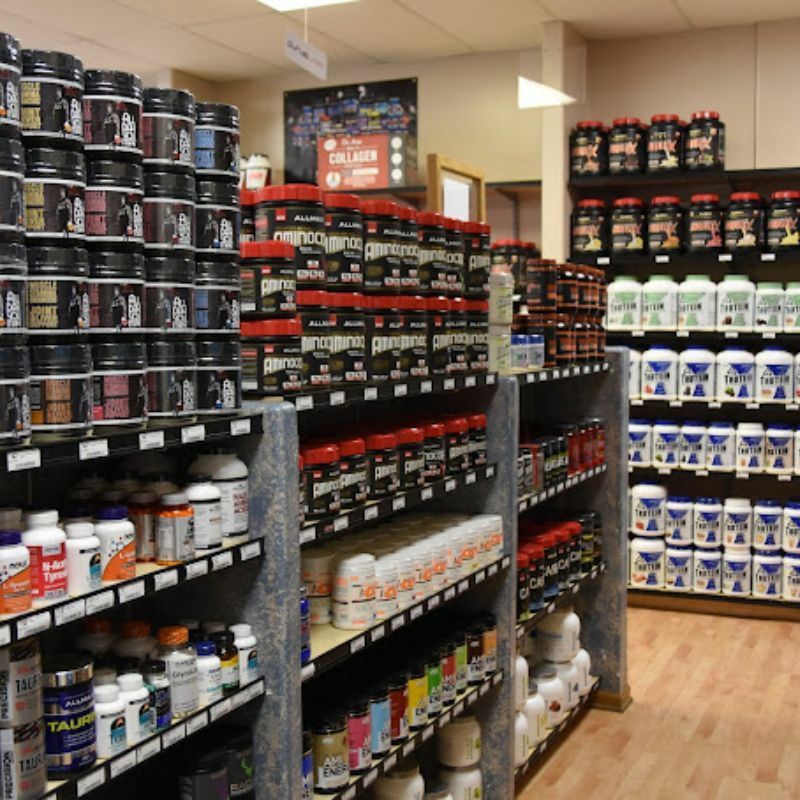Why Are Seed Oils Bad For You?

If you spend any amount of time online or on social media, you've likely seen a discussion about seed oils and whether seed oils are heart healthy as we've been told in the past, or whether seed oils are bad for you, or whether seed oils are toxic. A large part of why seed oils are being discussed so much recently is due to popular and influential podcast host Joe Rogan having on "Carnivore MD" Paul Saladino who warned listeners about what he views as the dangers of seed oils. He went on to encourage people to cook with animal fats or butter instead.
WHAT ARE SEED OILS?
Seed Oils are types of vegetable oils which come from the seeds of a plant or vegetable as opposed to from the fruit of a plant or vegetable. Most commonly used vegetable oils are actually seed oils. Common seed oils include the following... Soybean oil, Canola Oil, Vegetable Oil, Corn Oil, Peanut Oil, Rice Bran Oil, Sesame Oil, Cottonseed Oil, Rapeseed Oil, Safflower Oil, and Sunflower Oil.
HOW ARE SEED OILS PRODUCED?
One common criticism of seed oils is how much has to go into producing seed oils such as the use of genetically modified plants, heating the fruits or vegetables at high heats, using petroleum based solvents to extract the oils and acids to remove waxy solids. This compared to something like tallow or animal fats which don't undergo any of these treatments or something like butter which made simply by just churning cream until fats separate from the liquid and t he butter becomes a semi solid state.
So here's the "unnatural" process of making seed oils. Let's take Canola for example. In order to make canola oil you first have to get canola seeds. Canola is made from a genetically modified type of rapeseed, that seed needs a new name by the way, I'm surprised it made it through the #metoo era.
The rapseseed is then heated to high temperatures so that they oxidize and become rancid. It's then processed with a petroleum solid to extract the oils at which point more heat is added along with acid to remove waxy solids that form during the initial processing.
The oil is then further treated with more oils to improve the color and lastly is deodorized to mask the bad smell that comes from the chemical processing. As a laymen, when given the choice between cooking with tallow, bacon fat or butter versus heavily processed seed oils, it just seems like that is a more natural and healthier way of doing things.
SO WHY DO WE USE SEED OILS THEN?

In the grand scheme of things, and in the history of food and food production, seed oils are a relatively new phenomenon, they came on the scene in the mid 1990's during the processed food revolution. Prior to that most people used traditional fats to cook, things like tallow, butter, lard and/or olive oil. As new chemical processes became available to us, the food industry found a need for cheap fat substitutions and that's where seed oils come in.
If we look back historically, at the turn of the century much less vegetables were eaten, today however the average American consumes about 70 pounds of vegetables per year as a public health campaign against saturated fats and cholesterol began. Fast forward to today, even though cardiovascular disease and cancer rise at alarming rates, at the same time that butter consumption is down, and vegetable oil consumption is at all time highs. Now correlation does not necessarily equal causation, but it is an interesting coincidence.
Maybe it's because the word vegetable oil contains the word vegetable so it sounds healthy, but many believe they are far from it.
SO WHY ARE SEED OILS BAD FOR YOU?
Okay, so let's make the case for why seed oils are bad for you, or why seed oils are unhealthy. First, let's talk about Polyunsaturated Fats or PUFAs as they're sometimes called. Seed oils contain high levels of PUFAs. Some believe this is healthy since we've long been told that saturated fats are bad, however our bodies actually need about 97% saturated and monounsaturated fats to rebuild cells and for hormone production. PUFAs are unstable and oxidize quickly. Oxidized fats cause inflammation and mutations in cells and oxidation has been linked to issues like heart disease and cancer among others.
Next lets look at Omega-6's. With Omega Acids what's more important than the amount we consume, is the ratio at which we consume these, we need an appropriate ratio of Omega-3 to Omega-6. Omega-3 Fatty Acids have been shown to reduce inflammation and reduce the risk of diseases including cancer, Omega-6 Fatty Acids, which are found at high levels in seed oils have been found to oxidize quickly. When not appropriately balanced with Omega-3's these fatty acids have been linked to a variety of cancers and other health issues.
Lastly, let's talk about chemicals. Besides fats and omega fatty acids, most seed oils on the market tooday contain a number of additives, pesticides, and chemicals which were used in the processing of the oil. Many seed oils also contain artificial antioxidants such as BHA and BHT which have been shown to have the potential to produce cancer causing compounds in the body, they've also been linked to immune system issues, infertility and liver and kidney damage.
HOW CAN I AVOID SEED OILS?
Unless you're producing all your own food and homesteading, it's unlikely you'll be able to completely avoid seed oils throughout your life, however you can try to eliminate them from your diet and your life as much as possible.
First off, try to prepare your own meals at home as much as possible. Not only will this save you a lot of money and likely help you lose weigh or maintain your weight, you also know exactly what's going into your food. It's unlikely that you'll never eat out at a restaurant again, if you primarily eat at home and prepare your own foods without seed oils, the occasional meal out every once in a while isn't a huge deal, and you'll be making a big step in living a cleaner and healthier lifestyle.
Secondly, inspect the ingredients anytime you purchase something that's processed or packaged. It can be tough to go 100% Natural Real Whole Food, we all likely buy some processed foods, but there's generally some healthier alternatives. For example instead of buying Hellman's Mayonnaise which contains Canola Oil, buy a brand like Primal Kitchen. If you're someone who enjoys the convenience of nutrition bars, instead of buying Cliff Bars which contain Palm Oil, buy something like a Lara Bar or RX Bar. If you're a Peanut Butter lover like myself, instead of using Jif which uses rapeseed oil and soybean oil buy an all natural peanut butter.
WRAPPING UP
So hopefully this article gives you a better idea of what seed oils are, how seed oils became a part of the many foods we eat today, what the potential concerns about seed oils are, and how you can try to avoid seed oils as much as possible. Unless you move out to the country, buy a few acres and produce all your own food it's unlikely you'll be able to avoid seed oils entirely, however choosing foods that don't contain seed oil and using cooking alternatives like animal fats, butter and tallow can go a long way in protecting your health.
†The content of this blog post is intended solely for reference and entertainment purposes. We do not offer medical advice or specific guidance regarding the products discussed. Our insights are based on a combination of anecdotal experiences, online studies/reviews, manufacturer details, and customer feedback. While we strive to present accurate and current information, we cannot assure its completeness or its alignment with the most recent product formulations or data. For any concerns or up-to-date information, we recommend visiting the manufacturer's website directly. The opinions and information provided here do not necessarily reflect the views of Best Price Nutrition; they represent the perspectives and information from the manufacturers and users. Furthermore, these statements have not been evaluated by the Food and Drug Administration. The products mentioned are not intended to diagnose, treat, cure, or prevent any disease or illness.
Recent Posts
-
Can You Take Preworkout Before Sex?
Preworkouts are dietary supplements used to boost energy, focus, and endurance in an effort to impro
-
Ojibwa Tea: Detox Tea With a Rich History
Ojibwa Tea is an herbal tea with roots going back to Native American Traditions. Ojibwa Tea has expl
-
Black Friday & Cyber Monday Sale 2024
This Black Friday, Best Price Nutrition is excited to offer exceptional deals on a wide range of top








